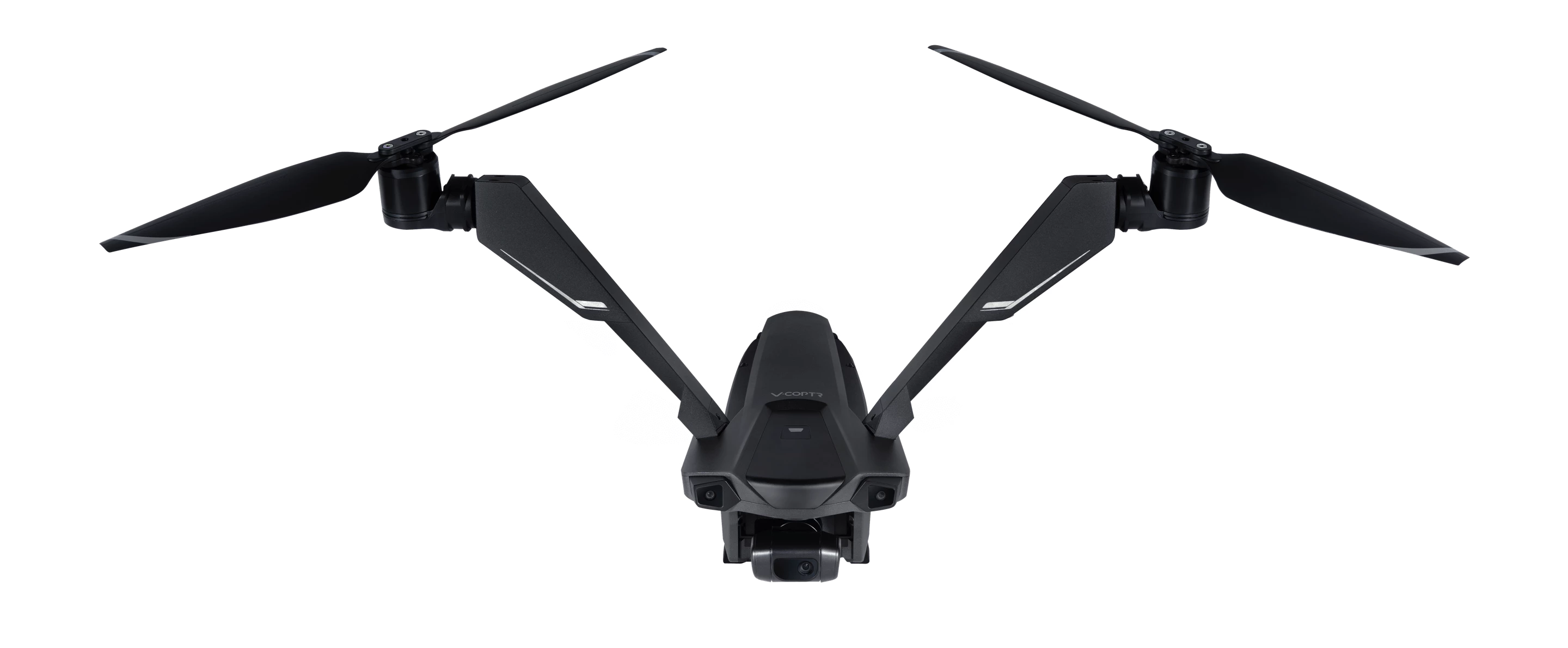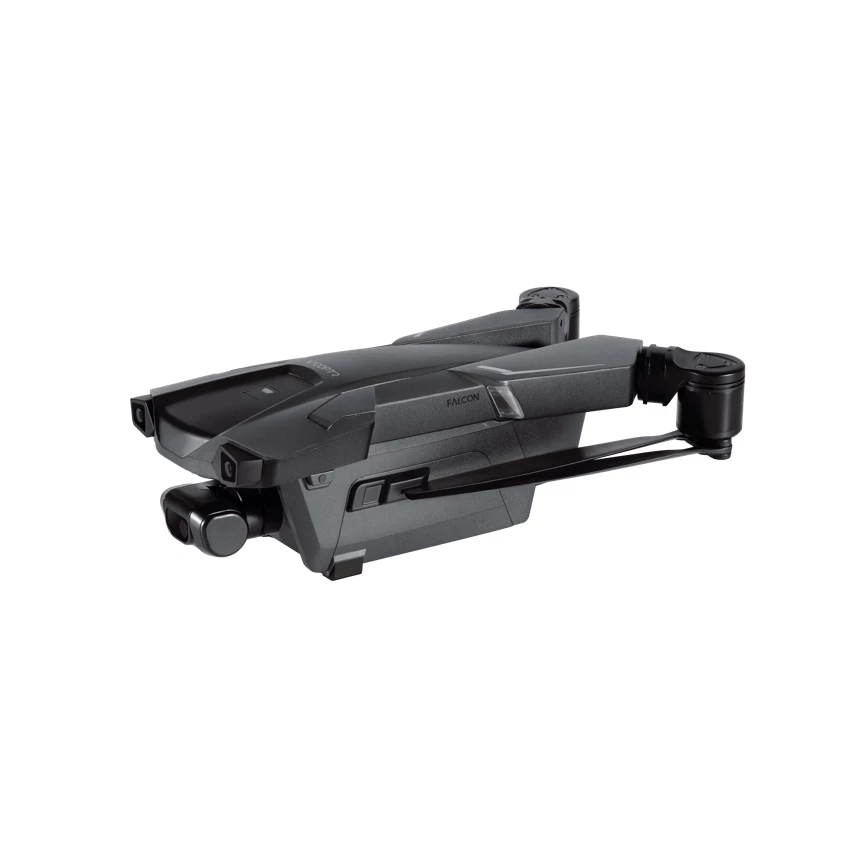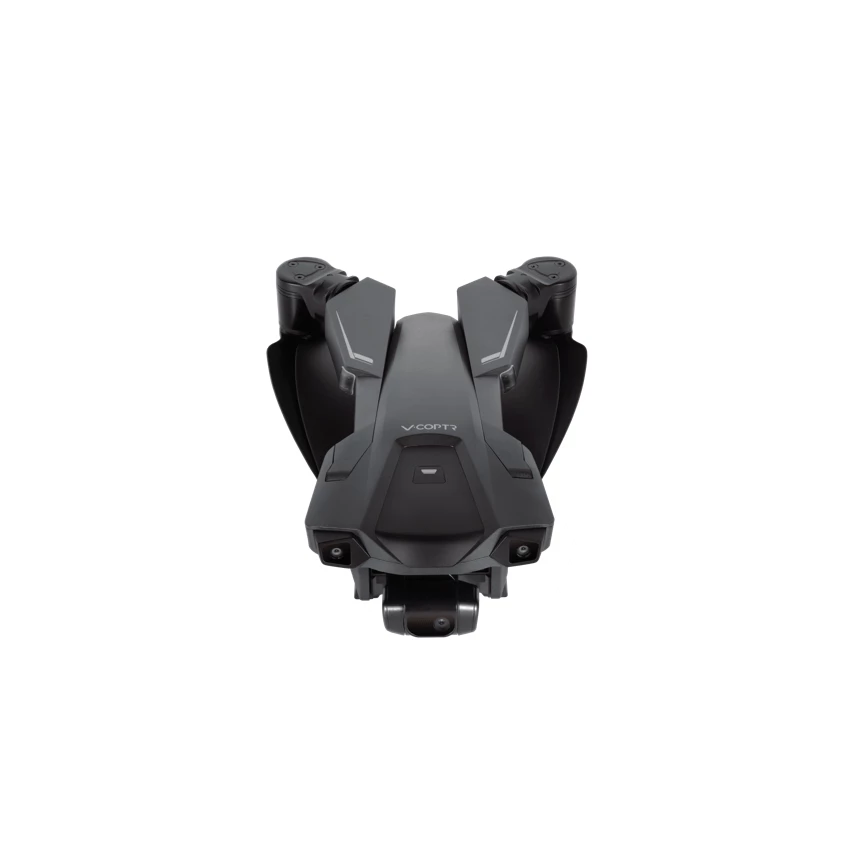Having made a splash with smaller drones built for simple selfie-snapping flights in the immediate vicinity, Zero Zero Robotics is back and this time it's thinking big. The newly unveiled V-Coptr Falcon is the first from the company that you might consider a typical-sized drone, but there's nothing typical about the way this V-shaped "bicopter" moves through the air.
The vast majority of consumer drones these days rely on four rotors to control their movement. By adjusting the amount of torque delivered to each of the four rotors, flight control software can make these quadcopters hover in place and tilt to travel forwards, backwards or sideways, as well as take off and land, obviously.
Zero Zero Robotics thinks this might be overkill. Its V-Coptr Falcon instead cuts the number of rotors to just two, and adds intricate tilting machinery that enables them to do the job of four. These tilting rotors sit at the end of arms that extend out from the top of the drone’s body, and can be folded inwards when not in use to form a neat 22 X 15 X 7 cm (8.7 x 5.9 x 2.7 in) package, with the whole thing weighing just 730 g (26 oz).
The main advantage of this design, at least according to Zero Zero Robotics, is a mammoth 50-minute flight time thanks to a 4,500-mAh battery and greater efficiency through the air. The best you’ll generally get out of a consumer quadcopter today is around 30 minutes from the likes of the DJI Mavic 2, which does weigh a little more at 907 g (32 oz) and packs a 3,850-mAh battery. If this figure indeed checks out once testers get their hands on the V-Coptr Falcon, it may well be a game-changer for the field of aerial photography.
And there’s some real substance to go with this unique flying style. The V-Coptr is fitted with a 1/2.3 inch CMOS sensor, the same you’ll find on DJI’s latest gear, allowing it to grab stills at 12 megapixels and 4K video at 30 fps. The camera sits on a three-axis mechanical gimbal to keep the footage smooth, while video can be transmitted back to the user from up to 7 km (4.3 mi) away.
Other features include a return-to-home function, pre-programmed flight paths, an auto-following feature and forward-facing obstacle avoidance powered by a stereo camera built into the front.
Zero Zero Robotics has put the V-Coptr Falcon up for preorder on its website with a current price US$699, though it plans to whack a $999 tag on it when it hits the shelves. That price includes the controller, spare propellers and a protective case. Shipping is slated for February 2020, while you can check out the pitch video below.
Source: Zero Zero Robotics









